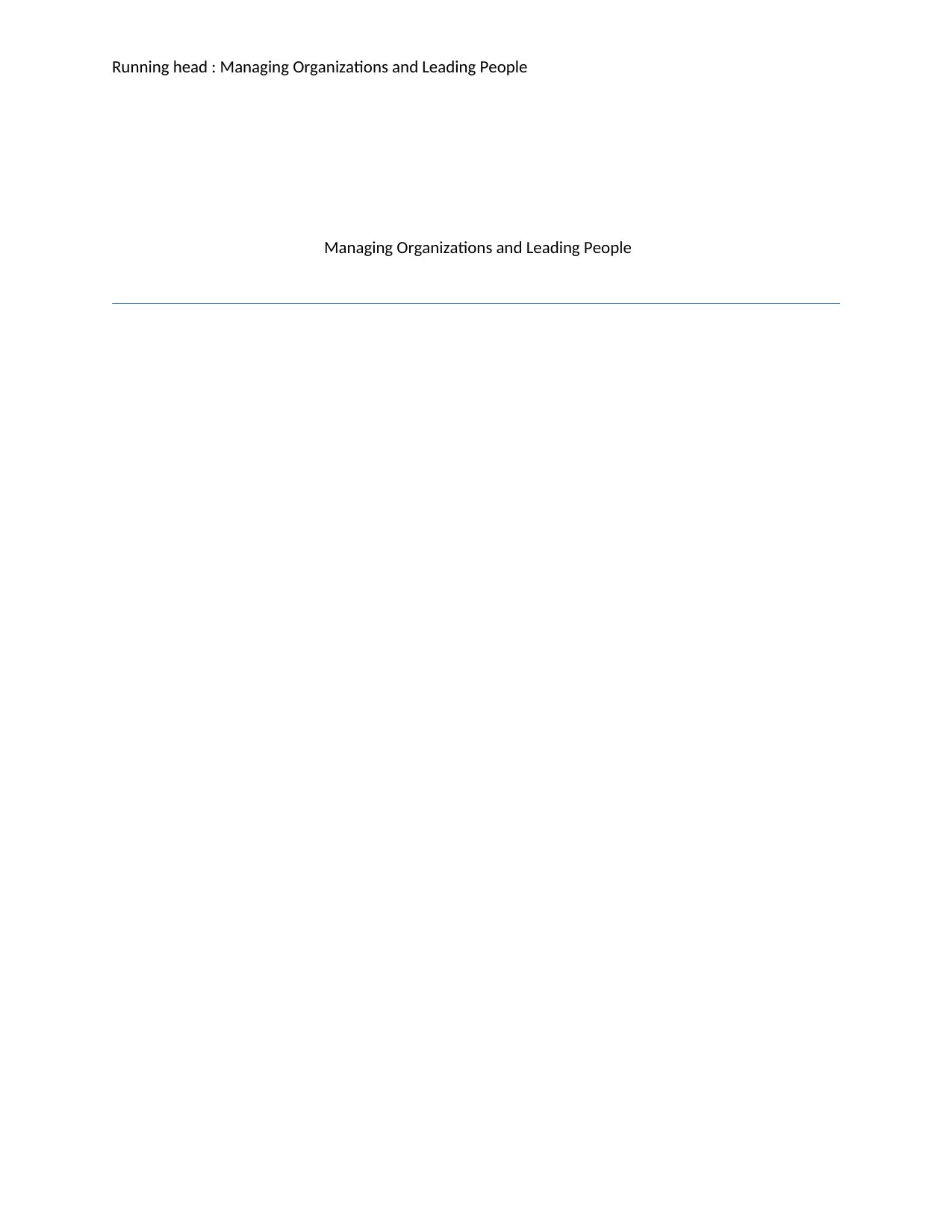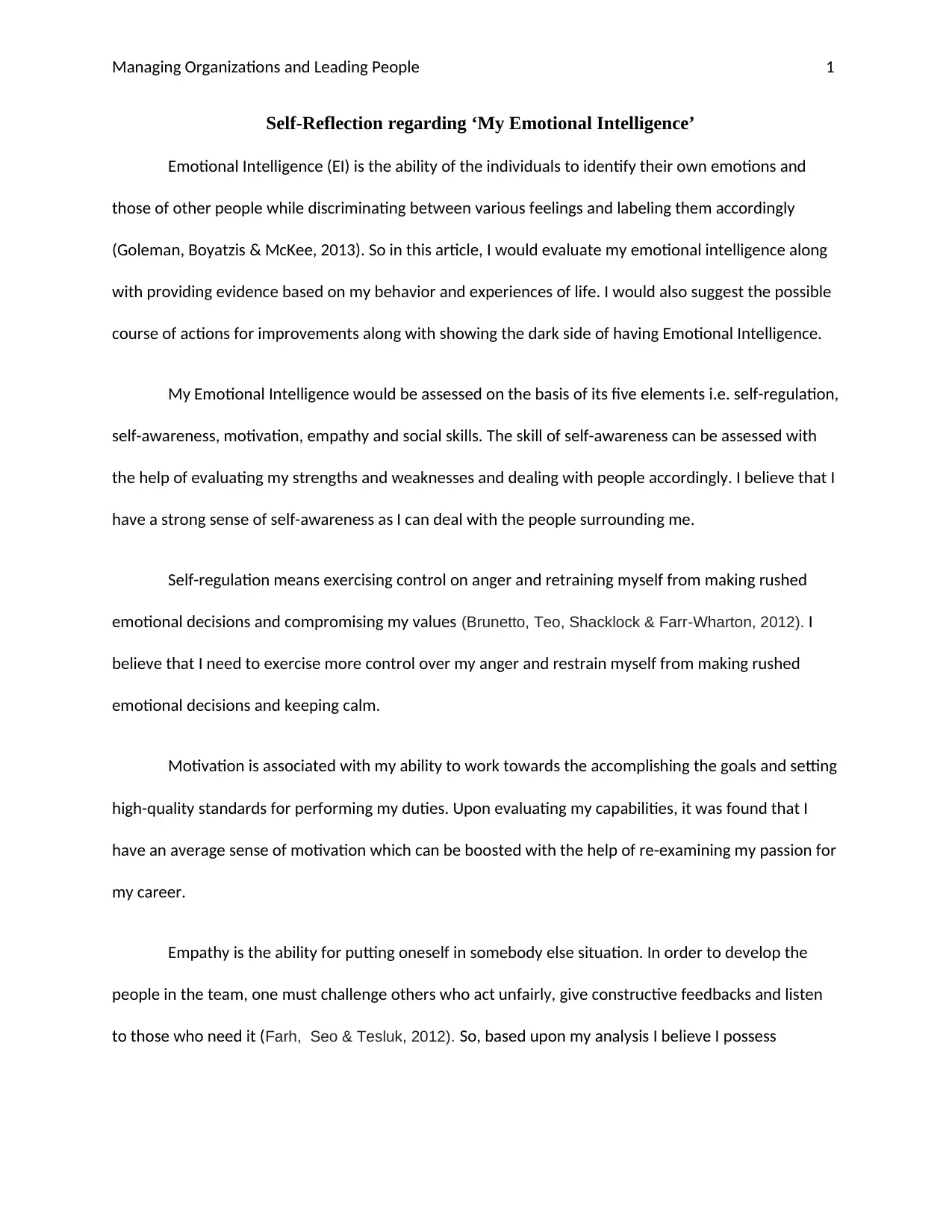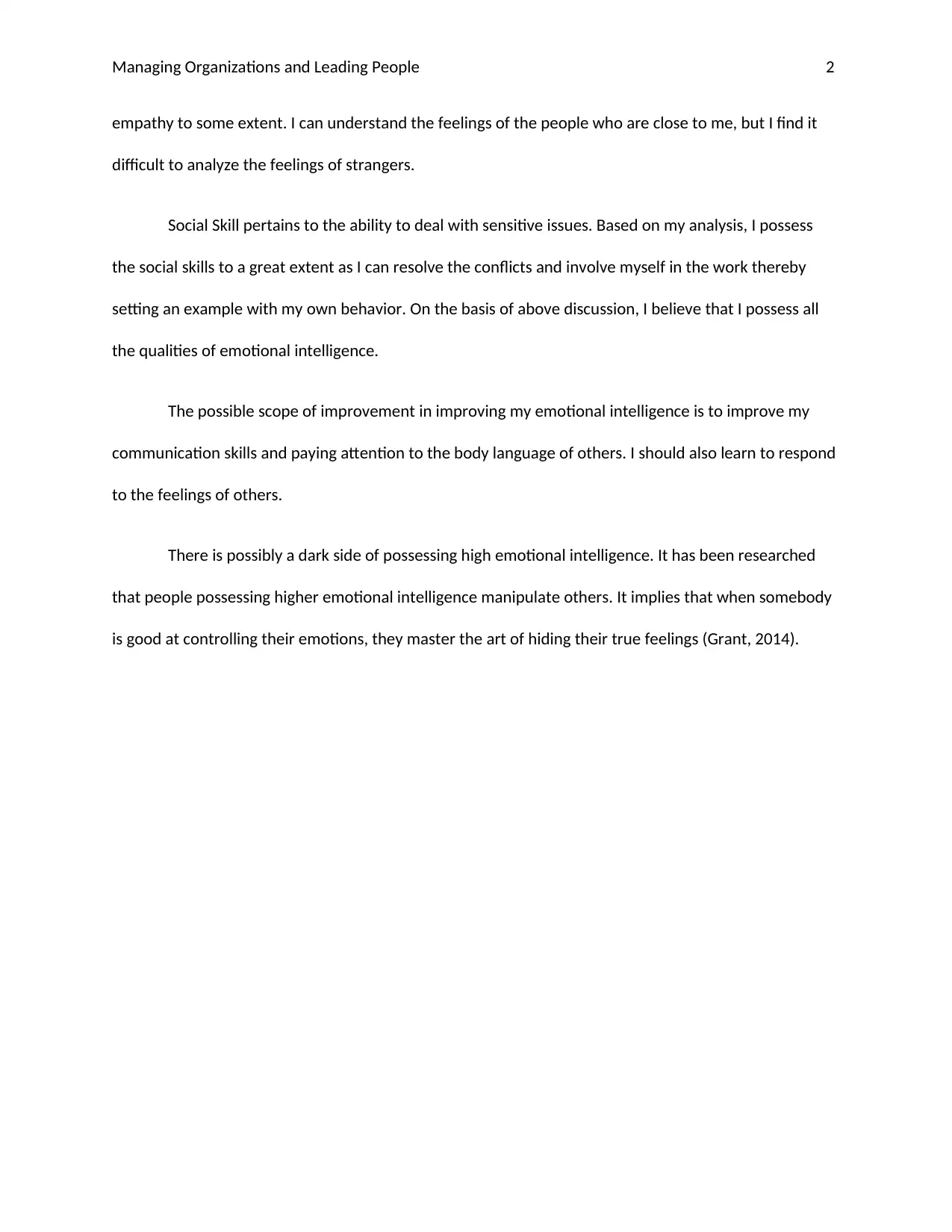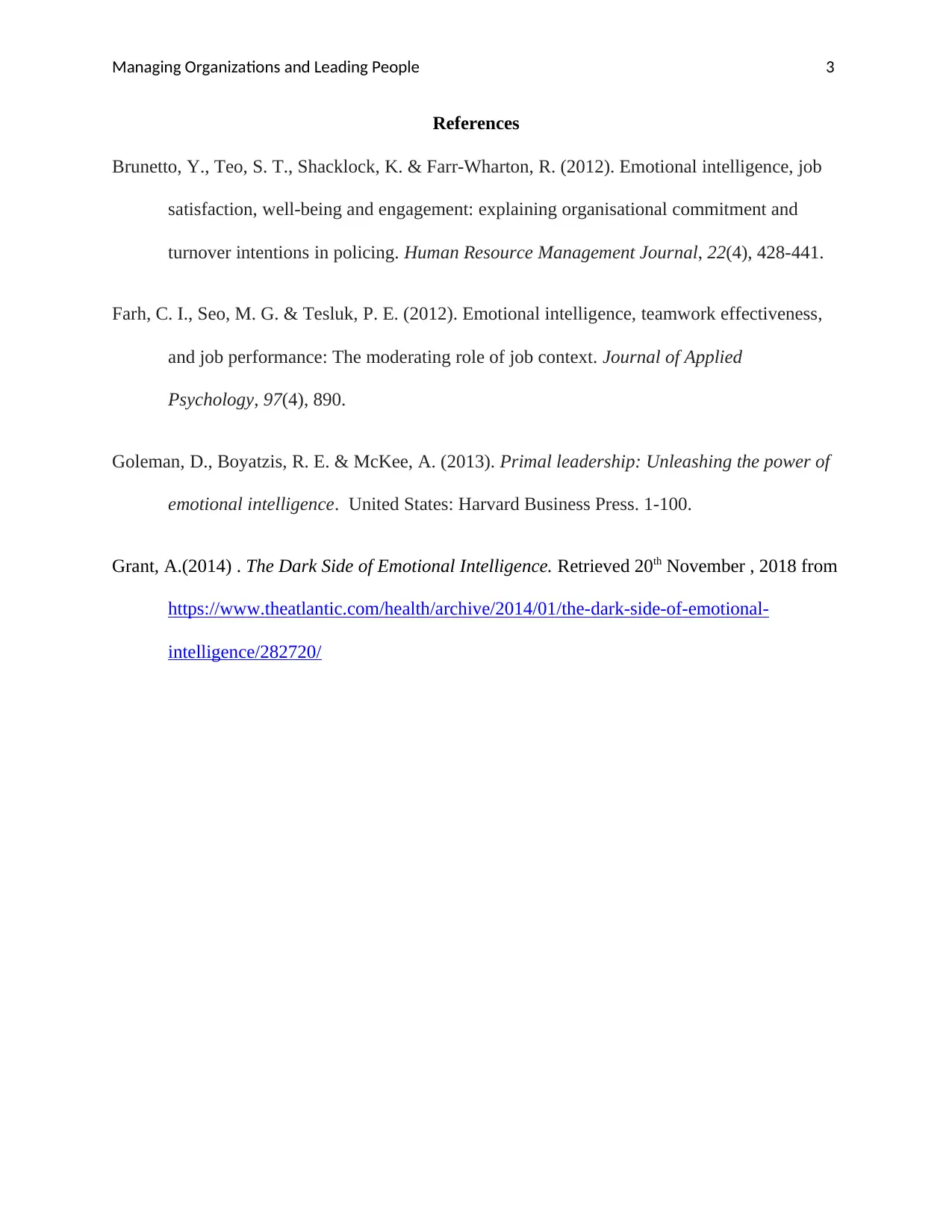Self-Reflection Report: My Emotional Intelligence in Leadership
VerifiedAdded on 2023/05/31
|4
|705
|105
Report
AI Summary
This report is a self-reflection on emotional intelligence (EI), evaluating the author's skills in self-awareness, self-regulation, motivation, empathy, and social skills. It provides an assessment of the author's strengths and weaknesses in each area, supported by behavioral evidence and life experiences. The report identifies areas for improvement, such as enhancing communication skills and paying attention to body language. It also acknowledges the potential downsides of high EI, such as the ability to manipulate others. The analysis draws on key EI concepts and relevant academic references to provide a comprehensive understanding of the author's emotional intelligence profile within the context of managing organizations and leading people. The report concludes with a discussion of how the author can further develop their emotional intelligence to improve their leadership capabilities.
1 out of 4











![[object Object]](/_next/static/media/star-bottom.7253800d.svg)